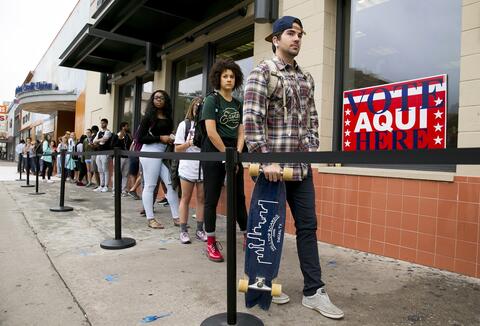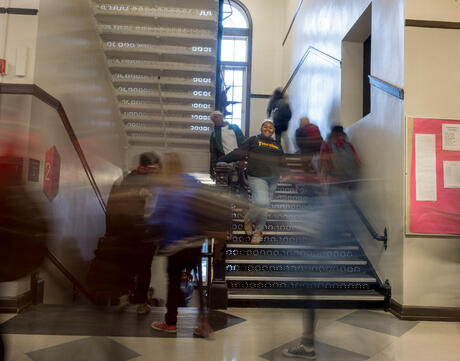
2022 Year in Review: How We’re Responding to the World Around Us
There’s no doubt that 2022 has been a year for the history books. As the world continues to emerge from a global pandemic, permanently altered, but not without hope — each day brings news that is shaping our future. This year we have responded to many events, historic milestones, and major news items and created resources to help students, teachers, and others make sense of current events — both in the classroom and beyond. Join us as we take a look back at some of the defining Facing History moments from this past year.
Standing up to Rising Antisemitism & Hate Speech
On January 15, 2022 there was an 11-hour standoff at the Congregation Beth Israel synagogue in Colleyville, Texas, in which the rabbi, Charlie Cytron-Walker, and three congregants were taken hostage. The ordeal ended after the rabbi threw a chair at their assailant, allowing the group to escape through a nearby exit. But not before making global headlines and starting off a new year that would see a steep and concerning rise in antisemitism. From physical violence like we saw in Colleyville to high-profile incidences of online hate speech, we’ve continued to produce articles, mini-lessons, and other teaching resources to help adults and young people combat contemporary antisemitism.
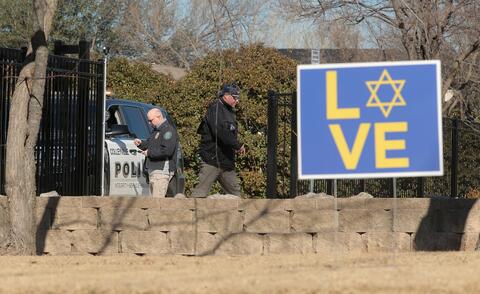
Responding to War & Human Rights Issues
In February, the world watched in horror as Russia invaded Ukraine, sparking a now months-long war that has devastated both countries and caused severe economic and social ripple effects across Europe. One of the most immediate impacts of the war was a major migration of people fleeing Ukraine and seeking refuge in neighboring countries. Our mini-lesson, Teaching About the Ukrainian Refugee Crisis, was a real-time response to the heartwrenching crisis, and offered a way for teachers to make space for students to process what they were seeing.
Throughout the year the ongoing war in Ukraine, along with other events like the ongoing protests in Iran, or the demonstrations at the World Cup in Qatar, continue to bring questions of how to address current Human Rights crises to the forefront.
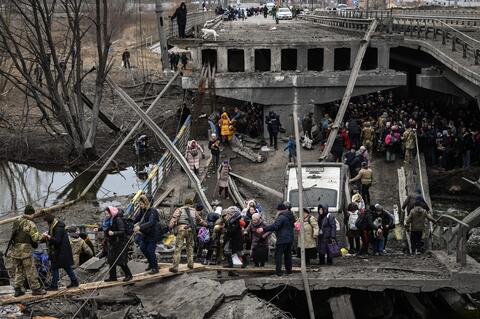
Making Meaning of the Supreme Court
In the spring, Justice Ketanji Brown Jackson became the first Black woman nominated and confirmed to serve on the Supreme Court. Jackson’s confirmation hearings offered an important opportunity to reflect on both the historical significance of her appointment as well as examine the inequalities that still pervade the U.S. government.
Nearly simultaneously the court was also making headlines after news of a precedent-changing decision in the Dobbs v. Jackson case was leaked to the public. And, when the court term ended in June, many of the final rulings set off intense political debates. When the court reconvened for the new term in the fall with a new slate of potentially history-making cases, we published a new mini-lesson, The Supreme Court, Trust, and Political Partisanship to help students learn about the widening gap in partisan perceptions of the Supreme Court and the history of partisan politics in the Court.
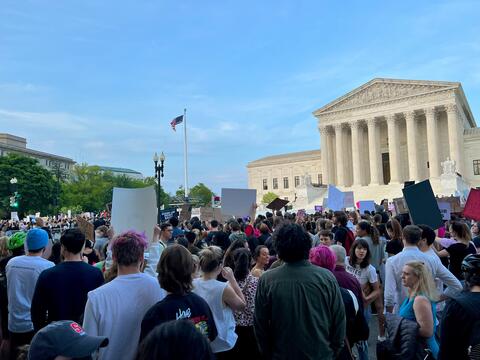
Considering Curriculum & Building Belonging
Throughout the year, educators have been confronted with more and more challenges to what they are able to teach and how they are “allowed” to teach it. From widespread book-banning efforts to new statewide curriculum restrictions limiting the teaching of certain aspects of our history, students are missing out on pivotal learning moments. But, even in an exceptionally divisive environment, we at Facing History remain committed to helping teachers and students explore the fullness of history and build brave learning spaces where everyone feels they belong. In the spring we responded specifically to a rash of troubling legislative efforts to limit trans students rights in schools. And earlier this month we completed our Coming-of-Age in a Complex World Collection with a new text-set, Becoming and Belonging, which includes lesson plans and multi-genre texts for a two-week unit exploring the essential question “How do we become who we want to be in the world?”
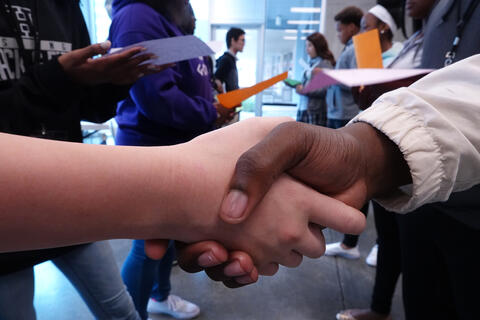
Promoting Democracy & Choosing to Participate
At the beginning of 2022, with the first anniversary of the January 6th insurrection looming, and another contentious election season on the horizon, many Americans were reporting a lack of faith in our democratic systems and civic institutions. We know that an engaged and well-informed citizenry is vital for sustaining and upholding a healthy democracy. Throughout the year we’ve shared lessons and teaching strategies focused on understanding polarization and building media literacy to help students. In September we hosted a special event with Dr. Danielle Allen and Dr. Peter Levine discussing the importance of civic education and why we must make democratic values visible in the classroom. And leading up to the fall elections, where young voters participated in record numbers and undoubtedly influenced many of the outcomes, we updated this mini-lesson on the important role young people play in our electoral system.
